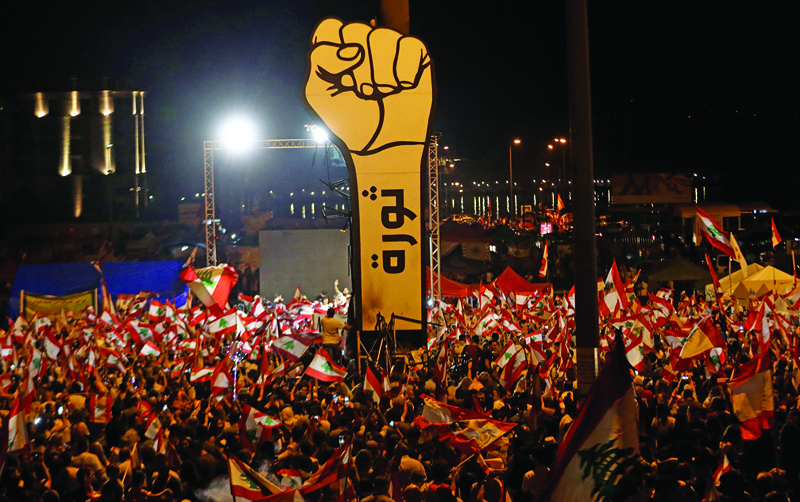
BEIRUT: The Arab Spring uprisings are nearly a decade old and moribund but protests in four new countries last year revealed that the spirit of the revolts that lit up 2011 is still alive. "The emergence of the 2019 wave of the uprisings in Algeria, Sudan, Lebanon and Iraq showed that the Arab Spring did not die," said Asef Bayat, an expert on revolutions in the Arab world. "It continued in other countries in the region with somewhat similar repertoires of collective action."
The countries swept up by the latest revolts had initially stood on the sidelines as a contagion of uprisings gripped Tunisia, Egypt, Syria, Libya and Yemen in 2011. But in 2019 they led calls for an end to the same regional economic precariousness, corruption, and unresponsive governance that fuelled the Arab protests years earlier.
Algeria
Memories of Algeria's 1992-2002 civil war had left many wary when protests swept the region in 2011, despite a wave of demonstrations that broke out in January over rising food prices. On Feb 22 last year, fear gave way to anger as President Abdelaziz Bouteflika's plans to run for a fifth term after 20 years in power prompted demonstrations in key cities.
The uprising, which would later become known as the Hirak protest movement, echoed a resistance to the kind of long-standing dictatorships that spurred the protests in Egypt and Tunisia nearly a decade ago. The Algerian army, like its counterparts in Tunisia and Egypt, withdrew its support for the regime, causing Bouteflika to resign on April 2, 2019.
Iraq
The 2003 US invasion had long rid Iraq of dictator Saddam Hussein by the time the Arab protests started toppling seeming invincible regimes like dominoes. In Feb 2011, Ali Abdulkhaleq, a 34-year-old activist and journalist, helped create the "Youth of February" protest group that organized weekly rallies in Baghdad's Tahrir Square to denounce the then government of Nuri Al-Maliki, which was corroded by corruption. Protests broke out again almost every other year, but anger finally boiled over in Oct 2019. An unprecedented nationwide uprising demanding a complete political overhaul forced the government of then-prime minister Adel Abdul Mahdi to resign.
Sudan
The advent of the Arab Spring lit a revolutionary spark in Sudan in 2011, said Mohammad Al-Omar, a 37-year-old activist. Omar said the clearest indication of the "influence of the Arab Spring uprisings" on his country came in 2013. Khartoum lifted petrol subsidies, leading prices to skyrocket and people to take to the streets, revealing the revolutionary fervor brewing beneath Sudan's surface. Protests broke out again five years later over soaring food prices and continued into 2019. On April 11, 2019, the army announced it had put Bashir under house arrest.
Lebanon
Imad Bazzi, a Lebanese activist and advocacy expert, has been pushing for political change since 1998. The Arab Spring uprisings, he said, fuelled his momentum. In Feb 2011, a jobless Bazzi started organizing the first series of protests, setting the stage for a grassroots renaissance in the decade that followed, leading to a wave of protests in 2015 over a garbage management crisis.
It culminated in Oct 2019, when a government decision to tax WhatsApp calls sparked an unprecedented nationwide movement demanding the wholesale removal of the ruling elite. The movement took aim at the entire political class, forcing the government of then-prime minister Saad Hariri to bow to street pressure. - AFP











